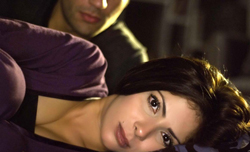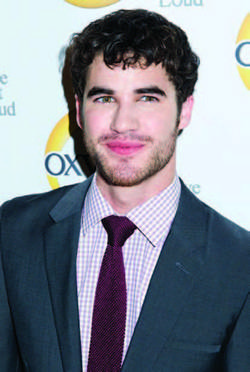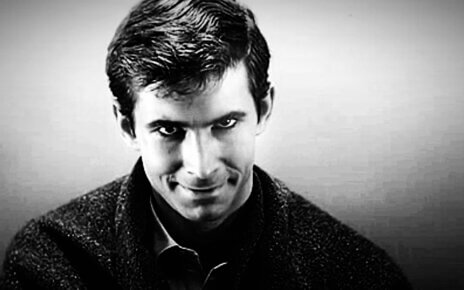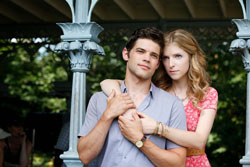The Provost Film Series kicked off last Monday in Pollak Theatre, entering its fifth year at the University, with a screening of the Egyptian movie Scheherazade: Tell Me a Story.
Provost Dr. Thomas Pearson acted as host for the event, welcoming guests to the theatre, and introducing “a great film.” He said this year’s theme, “A Journey into Muslim Culture with a Special Focus on Women,” was inspired by the events that led to the Arab Spring.
“How was it in these ancient capitals of the world that we saw such political volatility?” said Pearson. “Everybody was talking about the role of the social media in bringing about various upheavals; we were thinking it’d be very interesting to use film to get some sense of the political, social, economic and cultural origins of those upheavals against the patriarchal regimes.”
There was an open discussion afterwards with guest panelist Dr. Maysa Hayward, Dean of E-Learning at Ocean County College, who was born and raised in Egypt.
She said the title Scheherazade is based off the popular Middle Eastern story “One Thousand and One Nights” where a Scheherazade is a woman trickster that tells stories to a king to avoid having her head cut off. In the movie, Scheherazade is a woman “exposer of real life, in your face situations.”
Scheherazade is a story about Hebba (Mona Zaki), a well-known television host of “Dusk to Dawn” notorious for covering controversial political topics like illegal immigration that leaves the government irate. She’s a very pretty woman but a fierce host that climbs over tables as she debates with her guests.
Her husband, Karim (Hassan El Raddad), has a successful career at the government run newspaper and is offered to be Editor-in-Chief. The only catch is he has to convince Hebba to stop covering controversial issues and do more light material.
This is not an easy feat for Karim as he wants the position desperately, trying to suck up to the current Editor-in-Chief and other top government officials any chance he gets. He sweats as he tries to figure out how to convince Hebba.
“We agreed not to meddle in each other’s careers,” Hebba asks her husband as they discuss the matter over dinner in their luxurious apartment in Cairo. She’s reluctant and feels suffocated, but she wants to please her husband and help him succeed. “Marriage is more important to women than a career,” her friend says.
To cool her head, Hebba shops for new makeup where she’s helped by a female employee that isn’t convinced Hebba’s helping citizens with her news coverage. The employee takes Hebba outside of her comfort zone to a place where garbage burns and women stare if one is not wearing a head scarf. These are the people she should be focusing on, the real women of Egypt, “They’ll make for a great story.”
Hebba begins interviewing various women of different backgrounds to let them tell their story, thinking the government shouldn’t have a problem with that.
Except these stories hold more weight than she originally thought as three different stories are shown with immense detail, each depicting men, society and the government as cruel and unjust.
With each story Hebba slowly realizes how crucial being independent is, the dire situations women find themselves in and the little obstacles they have to survive and overcome. She worries about what lies ahead in her future.
Director Yousry Nasrallah does a marvelous job of interweaving the story of Hebba and her guests’ stories which can be disturbing and show a bitter side of Egyptian culture. Nasrallah conducts the ensemble well as each character is passionately genuine, acting in some very tough and powerful scenes.
Screenwriter Wahid Hamid wrote a script that never holds back and will leave any viewer speechless. To write this kind of a story is a courageous accomplishment, as Scheherazade won Best Screenplay at the Brussels International Independent Film Festival.
Zaki is a wonderful star for the movie, a beautiful woman that displays a range of emotions with such conviction. She is incredibly aggressive when trying to seek interviewees and arguing with her husband, and moving when she cries as she sympathizes with her guest.
“It was very thought provoking, what other choices did any of the characters have? Were they really restricted in the choices they had available, did they make good or bad decisions?” said Rosemary Wright, a resident of Ocean Grove. “It was very interesting because it wasn’t so clear that some of these people couldn’t have done something differently themselves.”
Hayward thought the timing of when the movie came out was great, as Egypt was boiling with frustration, and censorship was rooting out expression. She said Egypt let the movie be made to show they weren’t censoring everything, as it went beyond social status and education. Hayward asked the audience as she pondered herself, “Does art provoke social norms or the other way around?”
PHOTO COURTESY of tresspassmag.com




